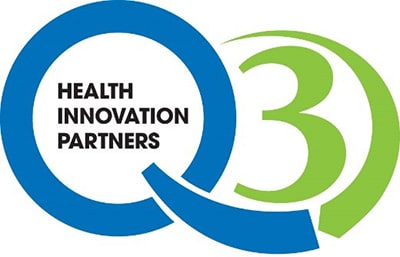 Q3HIP is comprised of the New Jersey Hospital Association, the Ohio Hospital Association and The Hospital and Healthsystem Association of Pennsylvania.
Q3HIP is comprised of the New Jersey Hospital Association, the Ohio Hospital Association and The Hospital and Healthsystem Association of Pennsylvania.
Building on the quality improvement track records of each of the three associations, Q3HIP’s vision is to collaborate in innovative research, quality improvement and population health strategies to advance the health and well-being of 33 million people, including nearly 6 million Medicare beneficiaries, living in New Jersey, Ohio and Pennsylvania.
HAP Contacts
For additional information regarding these patient safety initiatives, please contact Robert Shipp, III, PhD, BSN, RN, NEA-BC, vice president, population health and clinical affairs. Media inquiries should be directed to Kim Yakowski, manager, media relations.